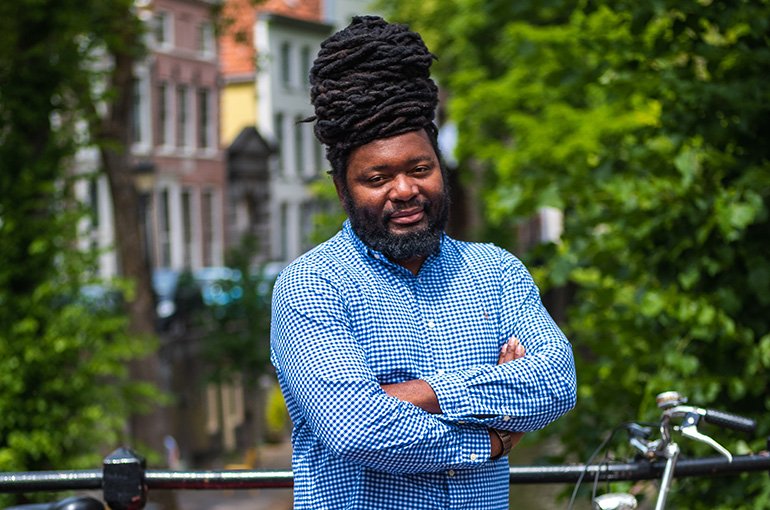“Becoming a professor never is a solely personal achievement”
Newly appointed professor for Media and Culture Studies Bruce Mutsvairo

Newly appointed professor Bruce Mutsvairo looks beyond borders and bubbles with his chair of Media, Politics and the Global South. “We want to promote research, teaching and public engagement on matters that relate to the interplay between media and politics.”
Goals as a professor for the Department of Media and Culture Studies
Bruce Mutsvairo looks forward to making important contributions to the strategic themes of the university. And his ambitions reach further: “We are keen to develop partnerships with others within and outside Utrecht University, who share like-minded interests in line with departmental, faculty and university’s strategic focus. We also want to learn and become better as we spread knowledge that we hope our stakeholders, particularly students and the communities we live in, will find important. We also have to be role models to others.”
Building bridges between north and south
“The chair of Media, Politics and the Global South emphasizes collaboration and cooperation as critical motives needed to tackle challenges facing humanity in today’s deeply disruptive, data-driven and digitalised media environment. We study the various ways through which media and political practices in Western and non-Western societies operate.”
“I must also add that I wrote a proposal for an establishment of the UNESCO Chair in Data, Disinformation and Democracy, which got approved. This chair is separate from chair at Utrecht University, but the issues studied on both chairs complement each other. Also: the UNESCO chair gives us access to the broader networks of the United Nations, so we are really excited about that.”
Securing grants to increase impact
When it comes to making impact, looking beyond boarders is necessary, Mutsvairo adds. “We won’t be judged based on our goals but results so hopefully we will be able to successfully apply for external grants.”
In an increasingly globalised world, what happens in Latin America and in other parts of the world, could severely impact us here in The Netherlands. So, my chair is more of a bridge builder between the south and north.
Currently Mutsvairo explores the role of disinformation on the conflict in Mali and Ethiopia, as a co-principal investigator on a Norwegian Research Council grant. “I hope we can secure more grants like this one at national and European levels, so that we can have a real impact with our research. It is a very competitive environment, so your chances are close to zero. But we have to try regardless.”
Professor with a first generation background
His professorship is not solely a personal accomplishment, Mutsvairo finds. “There is of course a procedure we all have to successfully go through to become a professor at Utrecht University. Beyond that though, everyone has a unique story to tell about their own journey toward professorship. Some get big grants, some have a huge network, some are so good they get a phone call from a head hunter.”
“I have a first generation background, so I only know one way: working hard. But you can work hard and still remain unhappy. That’s where luck comes in, I think. But then again, my mother used to say ‘you have to work hard to be lucky’.”
Professorship: a collective achievement
“It is important to note that I do not believe becoming a professor is some kind of a one-person show,” Mutsvairo says, “but rather a collective achievement. You collaborate with others, you work with others in a team, you need people to open their doors and enable access to data and publish. You need to have mentors, you need to be endorsed by your colleagues, you need the support of students, who are perhaps your main source of motivation. My point is: next to your intellectual ability, you also need both social and emotional intelligence.”

